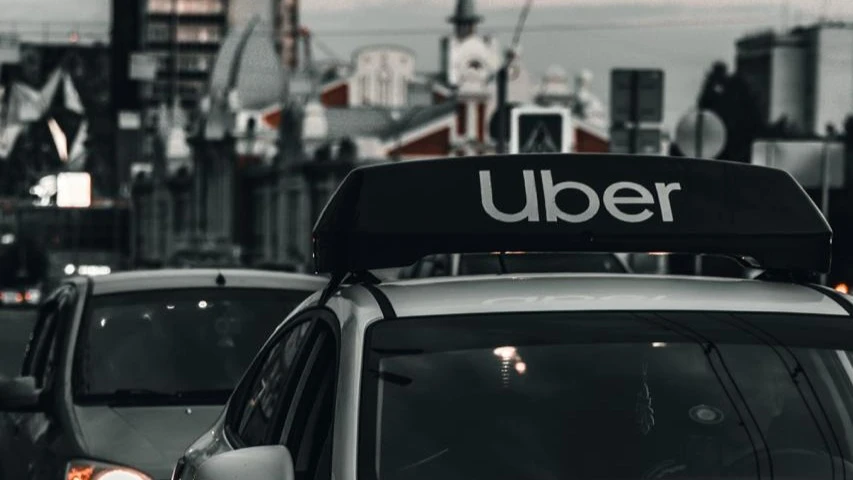Uber wants to launch a robotaxi in London. Does it have a place in the drone race?
London could become the first city in which Uber cabs will drive without a driver at all - even just controlling traffic

US cab and food delivery service Uber has set its sights on London to launch its fully autonomous cabs. The company will collaborate with British startup Wayve: this is in line with Uber's strategy, which has decided not to create drones itself. Analysts don't see this as a problem: on the contrary, for some, Uber and its approach to robotaxis is one of the main reasons to be optimistic about the company's stock. There is enough room in this market for everyone: Uber, Tesla, and Waymo, Barron's noted.
Details
Uber plans to begin robotaxi trials in London, which will be the largest market in which the company has ever launched unmanned cabs, the company said in a communication. The program will begin in the spring of 2026 in collaboration with AI startup Wayve. For the first time, Uber wants to conduct tests to Level 4 automation standards - that is, without a driver in the car insuring the autopilot. And that's despite the fact that London is one of the most challenging testing grounds for such technology, noted Wayve CEO Alex Kendall, as quoted by Business Insider.
"Our goal is for every city where Uber operates to ride our robotaxis," Kendall told BI.
Uber did not specify which vehicles would be used for the tests, but Wayve previously said its software would be used in 2027 on Nissan vehicles, noted MarketWatch. Wayve is based in London and develops software for unmanned vehicles. Its investors include companies such as SoftBank, Microsoft and Nvidia.
What it means for the investor
While Tesla is developing its own robotaxi service and plans to launch its first rides in Austin, Texas, in June, Uber has forged more than a dozen partnerships with automakers and autonomous driving technology developers around the world over the past year, writes Bloomberg. The company has decided not to develop its own drone technology, but instead offer a platform to commercialize it. Uber has already launched robotaxi services with Waymo (owned by Alphabet, Google's parent company) in Austin, Phoenix, San Francisco, Los Angeles (and will soon add Atlanta to the list), and with Chinese startup WeRide - in Abu Dhabi.
Wall Street analysts rather positively assess Uber's participation in the market of unmanned cars and do not see a threat to the company because of competition. In the long term, the unmanned car market may grow so much that it will benefit all its participants: Uber, Tesla and Waymo, noted Barron's.
RBC analyst Brad Erickson, in a note in early June, wrote that Uber has a much better chance of winning than losing in the robotaxi race. According to Erickson, the company is confidently positioning itself in unmanned transportation and is backed by strong fundamentals. "We see extremely low risks [for Uber] related to Tesla's upcoming [autonomous vehicle] launch in Austin, which still seems very likely," Erickson emphasized in Barron's outline. If Uber's stock fluctuates because of Tesla, RBC would consider that a signal for "more aggressive purchases" of those securities, Erickson noted.
JPMorgan analysts in May also stated that Uber is in a good position to capitalize on the development of robotaxis in parallel with continued profitable growth in its core business. They said Uber is becoming an increasingly valuable partner for autonomous driving technology providers - both as a demand and utilization platform and as a fleet operator.
What about the stock
In trading on June 10, Uber's shares first jumped by more than 3%, but then lost all the growth and went down by more than 1%. Since the beginning of the year, the company's market value is up nearly 43%. By comparison, the main U.S. stock index, the S&P 500, has added about 2.5% over the same period.
Wall Street's consensus price target for Uber's securities - $97 apiece - implies a 13% appreciation from the last closing price. The stock doesn't have a single sell recommendation among the 54 analysts tracking the company's securities. 44 advise investors to buy Uber shares (Buy and Overweight ratings), while the rest take a neutral stance (Hold).
